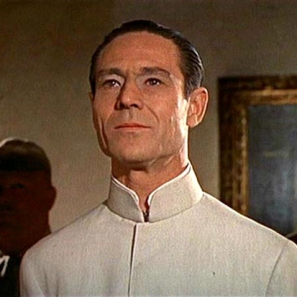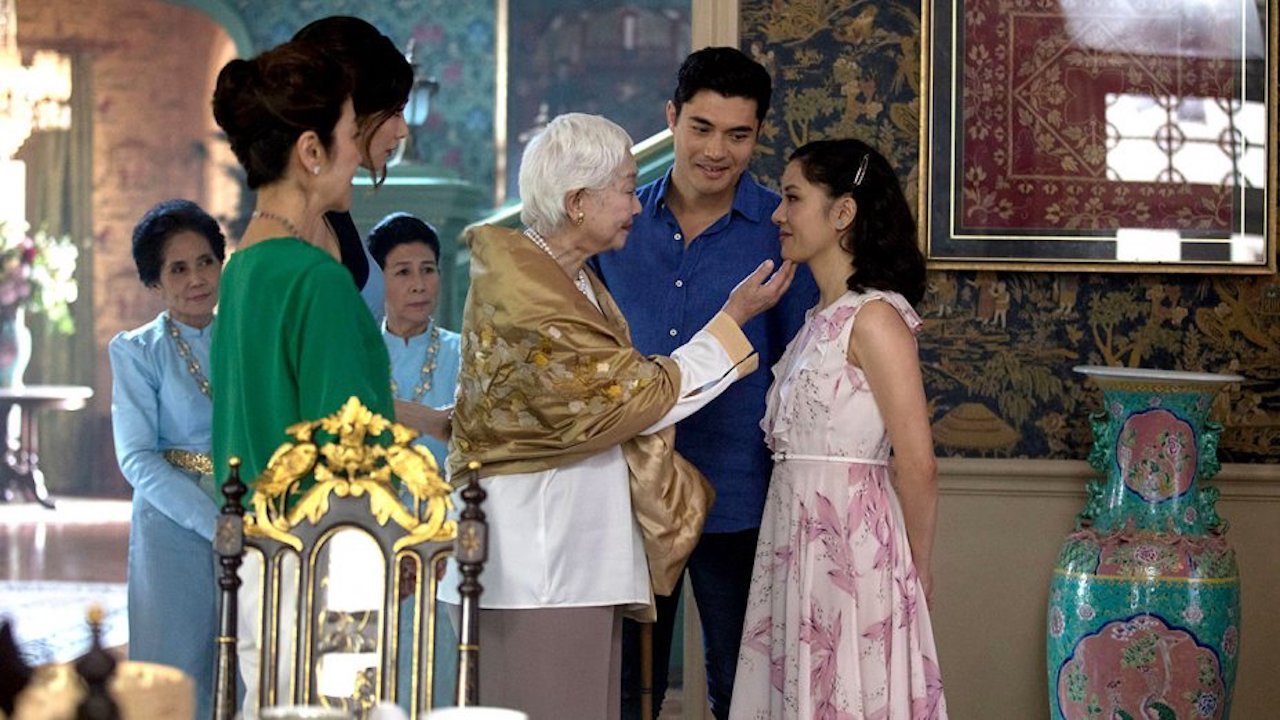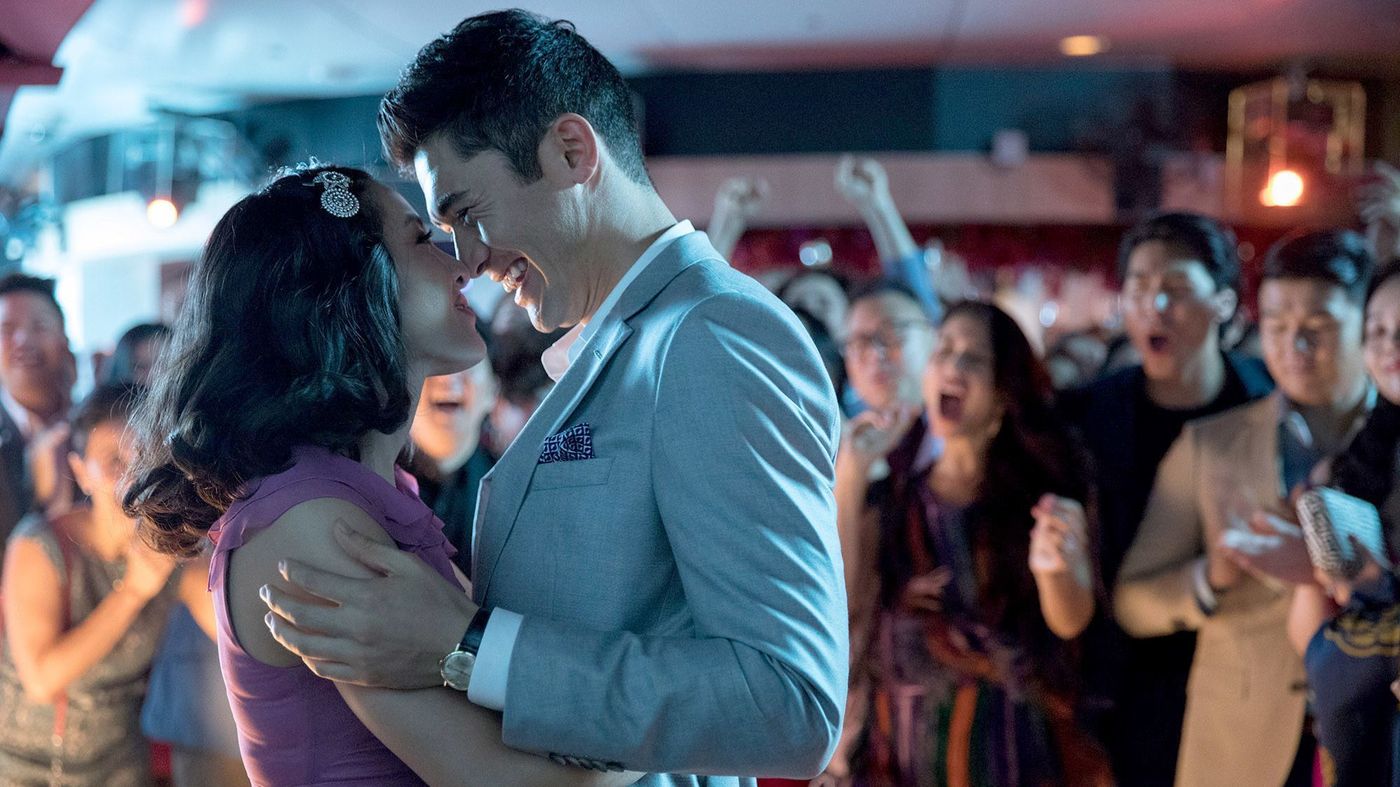I was pinching myself the whole time I in the theatre: I was in a Cineplex watching a Hollywood film called Crazy Rich Asians. Yes, a Hollywood film, distributed by Warner Bros., not an indie. Yes, Asians plural, not just one Asian of an otherwise non-Asian cast who’s a sidekick good at computers. Yes, crazy rich Asians, not Asians struggling to survive, but about Asians who thrive.
And representation aside — it’s a very enjoyable movie! (Disclaimer: I am not a crazy rich Asian paid to promote this film. I am a well-educated Asian with a journalist’s income.)
Crazy Rich Asians is based on the 2013 bestseller by Kevin Kwan, a Singaporean-born author who came from a world of wealth and connections that inspired the novel. Kwan’s great-grandfather was the founding director of Singapore’s oldest bank and his ophthalmologist grandfather was the nation’s first western-trained specialist. Kwan’s background allowed him to transform the excess and larger-than-life figures he was familiar with into a mock epic with a huge cast like that of a Robert Altman film.
Hollywood, obviously, scales books down. In translation, the film loses a bit of Kwan’s satirical prose. What we get instead is a rom-com: the fish-out-of-water kind, the girl-meets-boy kind, with the boy’s family disapproving of the girl who might marry into their clan. American-born Rachel Chu (Constance Wu of sitcom Fresh Off the Boat), an economics professor at New York University, visits Singapore to meet the family of her boyfriend Nick Young (newcomer Henry Golding). But middle-class Rachel does not know that her boyfriend is from one of Asia’s richest families, old money that struck gold in real estate a few generations ago.
And so the film details Rachel’s introduction to a world of immense wealth and Nick’s family and friends who bathe in that wealth, with paparazzi and social media bloggers gawking at her every move during her first trip out of the U.S. We meet aunties who are more concerned about gossip than the Gospel of Matthew during a Bible study, socialites who foam at the mouth when discussing the who’s-who of crazy rich Asian families and a bunch of crazy rich people who drop their money on handbags and helicopters, precious stones and cargo ship parties and this super rare cactus that only blooms for a moment and is shown off at a large party to great applause. We are also reminded that this is Asia and not Asian America because Rachel’s job as an econ prof is looked down upon overseas! Um, any Asian American parent would be over the moon if their son was marrying an econ prof.
Actors Wu and Golding make a charming couple, but the supporting cast steals the show, even if the roles they play are a bit archetypical: traditional grandmother, rowdy childhood friend, chilly potential mother-in-law (played by Michelle Yeoh, who has been kicking ass on Asian and American screens for three decades), etc. One star is Asian American rapper Awkwafina, who plays Goh Peik Lin, Rachel’s friend from college. She happens to be Singaporean (how convenient!) and breaks down the world of crazy rich Asian etiquette and connections for Rachel (and us). Peik Lin is a hilarious foul-mouthed fairy godmother-like character who preps Rachel for her debut into the world she might just marry into.
The rom-com is a tender, funny and refreshing antidote to the unwatchable, raunchy flicks that seem to have taken over this genre in recent years. I remember watching the cringey excuse for comedy that was the trailer of 2016’s Why Him with James Franco that has Franco telling his girlfriend’s father, played by Bryan Cranston, about how she “opened up like a flower” during sex and how he “should’ve seen it!” If you’re not surprised that there’s a bunch of Asians in this movie, then you should be surprised that this is a more-than-decent rom-com.
But more important than the fact that we have an enjoyable rom-com is the leap Crazy Rich Asians took for representation in Hollywood cinema.
You probably know that villains get dramatic introductions in James Bond films. When I was watching Dr. No growing up and when Dr. No finally strode in near the end of the film, the dramatic introduction for me was wondering why the fuck Dr. No, played by Joseph Wiseman, was a white guy? It was explained that Dr. No was, in fact, a Chinese German criminal scientist.

This was my introduction to “Asians” on screen. I later came across the goofy Long Duk Dong of Sixteen Candles (1984) and the inhumanly bucktoothed Mr. Yunioshi, played by Mickey Rooney, in Breakfast at Tiffany’s (1961). In the Vegas comedy The Hangover (2002), the actor Ken Jeong plays a ridiculous gang boss with poor English who we first meet when he springs fully naked from the trunk of a car pop-goes-the-weasel style wielding a crowbar. While Asian men have historically been depicted as perverted, twisted and villainous, Asian women have been sexualized in Hollywood. I remember watching The Transporter (2002), in which Jason Statham gets a Taiwanese-Hong Kong babe to dangle from his arm while he did macho action stuff. Sometimes, the Asian babes even get to be assassins! The late journalist Alex Tizon breaks down these desexualized and hypersexualized representations well in his book Big, Little Man. For me, having these weird Asian men on screen wasn’t too big of a deal, but not having positive Asian role models on screen was. It made me, a Canadian-born Chinese, ashamed to be Chinese.
There were some victories for Asians in Hollywood over the years. Bruce Lee, of course, but his influence also resulted in non-Chinese people seriously asking me why I didn’t know kung fu. The Joy Luck Club (1993) told the story of Chinese immigrants in San Francisco. Better Luck Tomorrow (2002) told the story of Asian American high schoolers tired of pursuing the Ivy Leagues and turning to crime instead; the director, Justin Lin, later turned The Fast and the Furious franchise into the blockbuster franchise that it is today, and even snuck a character, Han, from his indie foray into the action films.
But there were also films like The Last Samurai (2003), a well-received Japan-set epic, but one that needed Tom Cruise to headline it. Even in cross-cultural production The Great Wall (2016), funded by deep Chinese and Hollywood pockets, Matt Damon had to steal the show as the token white saviour.
Some young Asian Americans were able to use YouTube during its younger days to tell their own stories. A trio of friends during high school started Wong Fu Productions in California in 2001, making short rom-coms of their own — meet-cutes and the-one-that-got-away type stuff — often infused with Asian American experiences missing from the mainstream. Wong Fu’s films are too high-sucrose and cliché-ridden for my taste, but my Asian friends ate up the content lovingly, even lining up to see the filmmakers when they came to town and purchasing their merchandise. They weren’t the only fans: Wong Fu’s YouTube channel currently has 3.1 million subscribers and over 515 million video views. It goes to show that there’s such a hunger for representation that clichéd story beats can be fresh to many people if they’re told with new perspectives.
But in terms of a mainstream film with wide-appeal that does it for Asian representation in a big way, Crazy Rich Asians is it. It gives audiences a taste of Asian cultures and a peek into the world of Asian one-percenters through the eyes of an Asian American protagonist who doesn’t belong – she’s repeatedly told by Asian natives that she’s not Asian, but Asian American. The film is a small taste of the diversity of Asianness, mind you, but a yummy one, and thankfully it’s not the orange chicken I found Fresh Off the Boat to be, a show about the life of an Asian American family that some viewed as groundbreaking. I must admit that I feared this film would be in the same vein.
There were obviously trials along the way to getting a film with an all non-white cast onto screens. The big doubt was: would a film with all Asians and no white people make any money in theatres? And if yes, who would fund it? At one point, author Kwan mentioned that he had a high-profile offer for his book’s film rights, but on the condition that the Asian American protagonist going to Singapore be a white American.
One defining moment during the making of the film was chronicled in a feature by The Hollywood Reporter. There was high-stakes choice for Kwan and director Jon M. Chu. It took place over a 22-person conference call with both Kwan and Chu, their producers and a bunch of lawyers.
Kwan and Chu had two offers on the table: one from Warner Bros., which had just outbid other Hollywood studios with a distribution offer a week before the call, and one from Netflix, which tried to one-up Warner Bros. with an offer of complete artistic freedom, the promise of a rolling out two more films to complete a trilogy and seven-figure-minimum paydays for each stakeholder upfront.
Warner Bros. gave the filmmakers a ticking-clock deal ultimatum to speed things up: 15 minutes to decide. One producer, Nina Jacobson, who first acquired the rights to Kwan’s book, left the decision to the creative duo. Kwan gave Jacobson the rights for a dollar in exchange for a seat at the table transforming his beloved book into film.
Kwan and Chu thought they could rationalize the crazy rich Netflix deal by donating some of their earnings to causes to get more diversity in Hollywood. But they realized they were in a position to get more diversity in Hollywood by choosing the Warner Bros. deal.
So Kwan and Chu chose Warner Bros. and the chance to have their film on the big screen.
Kwan told the Reporter: “I could sense every lawyer on the call shaking their heads: ‘Ugh, these stupid idealists.’ Here, we have a chance for this gigantic payday instantaneously. But Jon [M. Chu] and I both felt this sense of purpose. We needed this to be an old-fashioned cinematic experience, not for fans to sit in front of a TV and just press a button.”
Chu added, “We were gifted this position to make a decision no one else can make, which is turning down the big payday for rolling the dice [on the box office] — but being invited to the big party, which is people paying money to go see us.”
I tip my hat to the duo for rolling the dice. And besides, in the battle for representation, Netflix has already taken television miles ahead with shows like Masters of None, which contains both intimate stories about the experiences of people of colour and queer people. It was time that someone took that battle to big screen blockbusters.
There have been some criticisms of Crazy Rich Asians: that not all Asians are super rich, that the film’s actors are playing ethnicities or identities they are not and that the “browner Asian characters are predominantly guards and domestic workers and drivers,” said Singaporean author and gay rights activist Ng Yi-Sheng.

Indeed, I found the film to be vague about Asianness. Other than a few throwaway references, it was almost culturally meaningless that certain characters were from Singapore, Taiwan or Hong Kong. (Marina Bay Sands and Gardens by the Bay do not a Singapore make!) We can’t help but feel that Korean American actor Ken Jeong isn’t playing a Singaporean father in this film but that he’s really just playing himself in a mishmash of his usual roles. There were, however, strong elements of Confucianism, filial piety in particular, that bound the characters and the plot. I got tingles when I saw my own family dynamics play out on screen.
I also found the film to be vague about crazy richness, only that there were people from “old money” and people from “new money” and nothing about the crazy poor Asians that might’ve been screwed over along the way in getting that wealth. We hear that a family has accrued wealth for generations through real estate. We hear that one character has some sort of start-up company that will make him crazy rich. That’s about it, but then again, did anyone watch the Tom Hanks and Meg Ryan You’ve Got Mail to learn about how big chains are destroying the landscape of independent bookstores? Sorry to viewers of this film who expected to learn about economic booms of Asia, global wealth or the effect of transnational property buyers on your local real estate market.
There is, however, one scene that might resonate with Vancouver viewers. There is a flashback to 1995 when the Young family, minus the breadwinning astronaut father, attempts to check in to a ritzy London hotel, only to be turned away for not being the right colour. The problem is solved when astronaut dad makes a few calls and buys the hotel. The hotel manager is gobsmacked by this display of unexpected wealth. I and others are probably similarily gobsmacked when we see displays of unexpected wealth in Vancouver by newcomer Asians. I remember going to Seasons in the Park – a restaurant that our family visited on special occasions and, like the London hotel, was kind of a white place – and seeing a bunch of mainland Chinese teens in cool streetwear order up a feast in the afternoon as if the establishment were nothing but a McDonald’s.
One big win for representation in the film that I can cheer wholeheartedly: Asian men being young and hot and not old and pervy Fu Manchus. There are two gratuitous scenes of well-sculpted topless young Asian dudes, one of those scenes even takes place in a shower. I’m pretty sure whoever was editing this knew the importance of it and just sat back and let the footage roll. And for representation’s sake, there’s also a less-than-well sculpted belly that appears on the body of an Asian dude with the hair of No Country for Old Men’s Anton Chigurh — Asians are diverse, you guys!
But anyway, back to identity politics. I believe these criticisms about Crazy Rich Asians have only arisen because there is such a desire for representation; most criticisms are about how the film doesn’t go far enough. Media have also been playing up Crazy Rich Asians as the end-all answer to Asian representation in Hollywood because so much has been riding on this film; Peter Bradshaw of The Guardian wrote that “it’s unfair that the systemic injustices in Hollywood have saddled a romcom, of all things, with the burden of needing to be everything for everyone.” Rather than an end-all, I hope that the film performs well enough at the box office for it to be the beginning for groups that aren’t used to seeing their lives in cinematic fashion. If this movie sucked, it could’ve set representation backwards, but I cheer the cast and crew for sticking the landing so that the door can be kicked open for other voices to tell their stories. ![]()
Read more: Film
















Tyee Commenting Guidelines
Comments that violate guidelines risk being deleted, and violations may result in a temporary or permanent user ban. Maintain the spirit of good conversation to stay in the discussion.
*Please note The Tyee is not a forum for spreading misinformation about COVID-19, denying its existence or minimizing its risk to public health.
Do:
Do not: